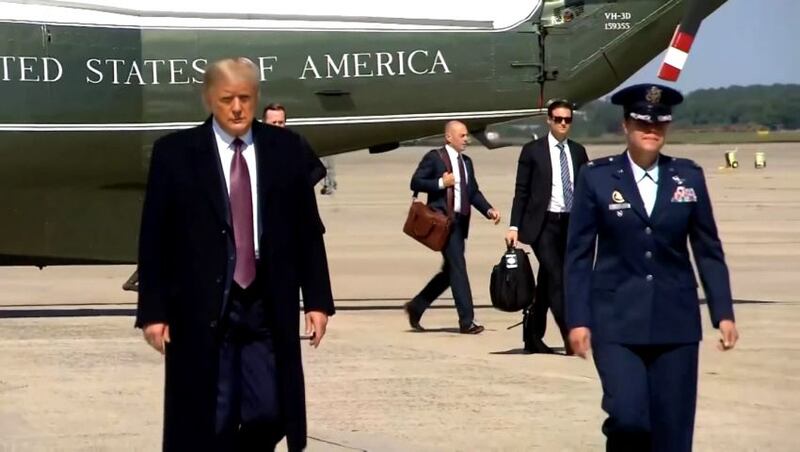Before President Donald Trump left the White House for Walter Reed Army Medical Center on Friday, his doctor confirmed he was given an eight-gram injection of an experimental cocktail of monoclonal antibodies created by the Regeneron company. The company had received half a billion tax dollars to develop it.
Antibodies are the molecules our bodies make to fight infections. Regeneron is one of three labs that designed and built antibodies in a laboratory specifically geared to attack the coronavirus.
The antibody Regeneron copied came from a patient right here in Washington State. Early clinical trials show promising results, helping some patients get better faster, and local trials will soon be underway, but UW Medical’s infectious disease specialist Dr. Paul Pottinger says it still leaves a lot of questions.
“Based on those preliminary studies, there’s a suggestion that this medication may help, so it’s not out of the question to give it,” Pottinger said. “I’m not clear people with mild infection would benefit from it, I think that is unknown, and I’m not clear it’s been studied in that way.”
Pottinger said although the monoclonal antibody experiment is exciting, the trials are still ongoing. The president’s own body must fight the infection, the same way every other patient does.
“We do not have any treatment--this new treatment you’re talking about--or any other treatment that will guarantee survival if someone catches COVID-19,” he said.
Pottinger said the entire medical community cringed when they saw the president consistently not wearing a mask around other people.
“The president’s infection was totally preventable, totally predictable, and totally unacceptable,” he said. “Everyone saw this coming.”
He says the president’s bout with the disease should convince people--prevention is a lot cheaper and simpler than the cure.
“It’s just a stupid virus,” Pottinger said. "Its whole job is to infect us if we make a mistake, and if we don’t give it that chance, we can really keep that curve flat.''
Cox Media Group








